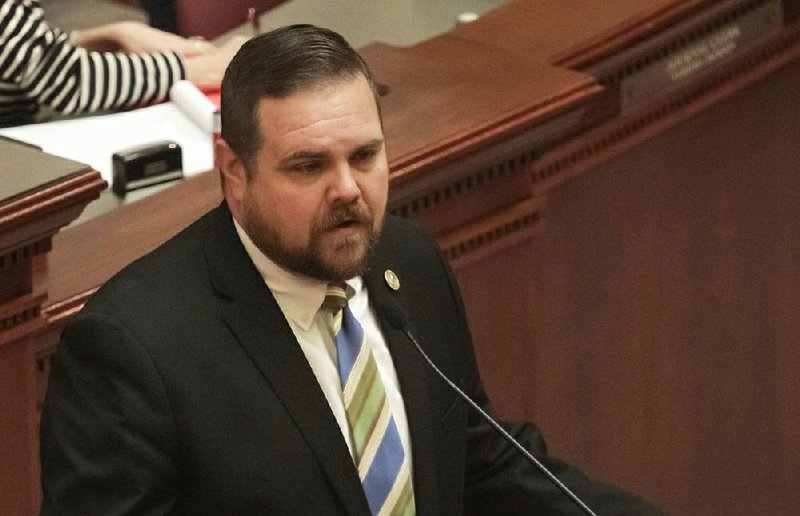A Senate panel Wednesday endorsed legislation aimed at protecting speech on college campuses.
The Senate Education Committee passed Senate Bill 156 by Sen. Bob Ballinger, R-Berryville, called the "Forming Open and Robust University Minds Act."
The bill would enshrine into law free speech protections for students, administrators, faculty and staff members, and the guests of those people at state-supported institutions of higher education. The bill comes after several high-profile incidents of speakers being disinvited from appearances on college campuses across the U.S. because of objections from campus groups that disagreed with the speakers' messages.
In Arkansas, the protections in SB156 usually play out in practice, Ballinger said, but he added that some recent U.S. Supreme Court decisions have narrowed what free speech on college campuses looks like.
"Even the law itself, it's not bad when it comes to Supreme Court jurisprudence," Ballinger said. "The problem is how it's implemented; how it's actually carried out. So what we're doing here is providing some guidance to higher education on how to do that."
[RELATED: Complete Democrat-Gazette coverage of the Arkansas Legislature]
The bill sailed through the committee Wednesday without audible dissent, and no one spoke against the bill. Ballinger said officials from the state's universities were involved in drafting the bill, and none opposed it.
The bill would force changes in policies at two Arkansas universities. Both Arkansas State University and the University of Central Arkansas have designated free-speech zones, which are regularly available for public expression. The schools' policies require approval for demonstrations of public expression on other areas of campus. SB156 would bar creation of free-speech zones.
U.S. Education Secretary Betsy DeVos criticized ASU last year in a speech in Philadelphia over the school's free-speech zone.
She alluded to ongoing litigation between ASU and a student who claimed that school officials stopped her from handing out information about a conservative group.
ASU has asked a federal judge to delay the suit, citing Ballinger's legislation.
SB156 would extend the free-speech protections to "non-commercial expressive activity in an outdoor area of campus" as long as it's not unlawful, or materially and substantially disruptive of the college's functioning.
"We want the campuses to still be able to have class," Ballinger said.
Several members expressed concerns about the bill allowing speech that may be racially biased, misogynistic or otherwise discriminatory.
"What about racist groups, or white supremacists, or Nazis or ISIS, anything goes?" asked Senate President Pro Tempore Jim Hendren, R-Sulphur Springs.
"Well so that's the thing, the Fellowship of Christian Athletes would have ability to occupy a space, and same thing, the young socialists would have opportunity to occupy the space," Ballinger said. "Any other group that expresses an idea that would be offensive so long as in doing so they're not materially disrupting the ability of the university to carry out its business.
"So if they're there advocating for violence, if they're there to the point it's abusive, then they would have the ability to be shut down."
People who feel that a university violates their rights under Ballinger's bill could sue the institutions, seeking injunctive relief, attorney's fees and expenses.
According to an American Association of University Professors Committee on Government Relations' 2018 report, eight states have passed campus free-speech legislation.
Missouri passed such a law in 2015, and Tennessee passed a similar measure in 2017.
The bill now moves to the full Senate.
A Section on 02/07/2019
